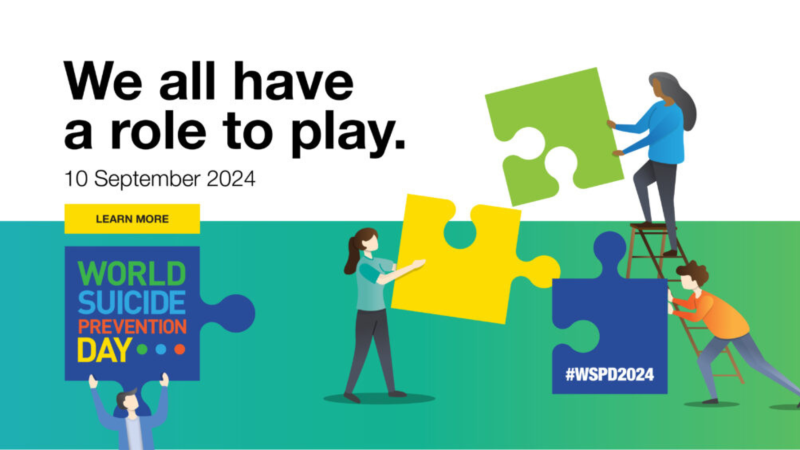
Changing the narrative around suicide is critical to saving lives. On World Suicide Prevention Day on Tuesday, September 10, 2024, you can help make a real difference or learn where to seek support if you are struggling with suicidal thoughts.
Some 10 million Australians know someone affected by suicide – almost half of our population. That’s why the International Association for Suicide Prevention, in collaboration with the World Health Organisation (WHO), organises World Suicide Prevention Day. This year’s theme, Changing the Narrative on Suicide, aims to raise awareness about the importance of how we talk about and understand suicide.
By changing the narrative, we can:
- Shift from a culture of silence and stigma to one of openness, understanding, and support
- Encourage open, compassionate conversations
- Support people considering suicide to reach out for help
- Provide comfort and support to those who have attempted suicide
Why Changing the Narrative Matters
Changing the Narrative on Suicide is about shifting away from fear, judgment, and silence. It's about creating a space where people can speak openly about their struggles without shame, and where help is seen as both accessible and effective. By talking more openly and compassionately about suicide, we can challenge misconceptions, reduce stigma, and provide hope for those who feel lost.
This year’s focus also highlights the importance of making suicide prevention and mental health central to public policy. It's a call for governments to step up and make mental health a priority. Changing the way we approach suicide means pushing for policies that expand access to mental health care, ensure adequate support services, and provide resources to those who need them most.
Here's how you can help change the narrative:
By participating in World Suicide Prevention Day, you can learn how to reshape the way we talk about suicide and offer hope, care, and support to someone in need:
- Start a compassionate conversation with a friend or family member you’re worried about
- Make it clear that it’s okay to discuss their feelings and struggles without fear of judgement
- Take time to listen carefully and empathise with what they are going through
- Show that you are there for them, offering support and understanding
- Avoid turning the conversation toward your own experiences, focusing instead on their feelings and needs
Talk to us today
For more information, contact us on 1300 779 270 or make an enquiry now.


